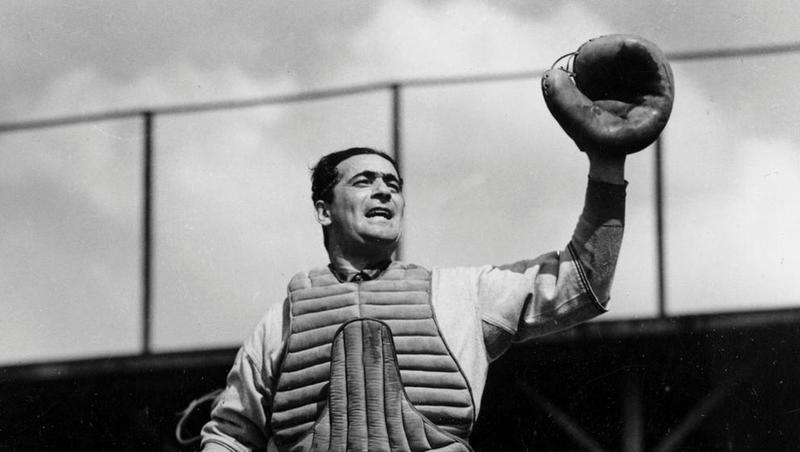Moe Berg: From MLB Player to WWII Spy

Morris "Mo" Berg enjoyed two exciting careers in his lifetime... first as a Major League Baseball player and then as a World War II spy. He earned the unofficial title of "Best Brains in Baseball", and it was Berg's superior intelligence that drew public attention, not just his athletic ability. Berg was a nerd and a jock at the same time. Casey Stengel also called him "the weirdest guy ever to play baseball". So how did a mildly athletic-minded end up drowned in wartime intrigue?

Baseball And Books
Mo Berg had a lifelong love of learning and even begged his mother to let him start school at the age of three and a half. When he was seven years old, he began playing baseball for the Methodist Episcopal Church's baseball team despite being Jewish, one of a long line of Berg's groups where he was an oddity because of his religion. Next was the Barringer High School baseball team. After receiving a diploma from Barringer, Berg attended New York University where he played on the college's baseball team. After only one year, he transferred to Princeton University where he studied seven languages: French, Spanish, Italian, German, Latin, Greek and Sanskrit. He graduated magna cum laude with a degree in modern languages. At both New York University and Princeton, Berg didn't really fit in with his fellow classmates because he was one of the few Jewish students.
He got a place on the Princeton baseball team. He was a solid, smart player, which made up for in his slow running and mediocre hitting. During his senior year, he communicated plays in Latin with his teammate Crossan Cooper to confuse opposing players.

Mo-wing up to the big league
On June 26, 1923, the game between Princeton and rival, Yale, was held at Yankee Stadium. Even though Yale beat Princeton 5-1, Berg's game was brilliant. He got two hits, a single and a double, and made some great stops as shortstop. The game's scouting stand had representatives from the New York Giants and the Brooklyn Robins (later known as the Dodgers). Both teams were looking for a Jewish player to add to their roster so they could appeal to the growing Jewish population in New York. Berg attracted his attention, not so much for his playing ability as for his religion. Berg ended up signing with Robbins under a $5,000 contract, which would equal about $72,000 today.

Spying For The War Effort
After the bombing of Pearl Harbor, Berg joined the Office of Coordinated Inter-American Affairs and shot footage of Tokyo Bay that helped Lieutenant Colonel Jimmy Doolittle plan his famous Doolittle Raid. After that, Berg held positions in South America and the Caribbean. Exactly a year later, he accepted a position with the Office of Strategic Services, the forerunner of today's CIA, and the first mission with him had him parachuting into Yugoslavia to meet with resistance groups fighting against the Nazis.
Berg became a team member of Project Larsen. Although Project Larsen's well-publicized mission was to kidnap Italian rocket scientists, a lesser-known aspect of the group was to secretly interview European physicists to determine how much they knew about nuclear research being conducted by the Germans. In particular Werner Heisenberg and Karl Friedrich von Weizsacker. The task involved Berg traveling around Europe, working closely with top members of the scientific community.

From post-war spy to freeloader
When the war ended, Berg reportedly begged the OSS, now called the CIA, to send him to Israel, but his request was denied. The CIA used his skills for another mission in 1952 when Berg was asked to use his WWII contacts to learn about the Soviet nuclear science program. Berg was never able to collect anything valuable in his espionage efforts, so he was deported back to the United States.
Berg never again had another paying job. If someone asked him what he did for work, he would put his finger on his lips, which means he still works as a detective. In fact, he lay on the couch, away from various friends and relatives. He never married, or even dated, and loved to spend time with his books. His final years were spent in New Jersey living with his sister, Ethel. Berg died on 29 May 1972.

No comments: